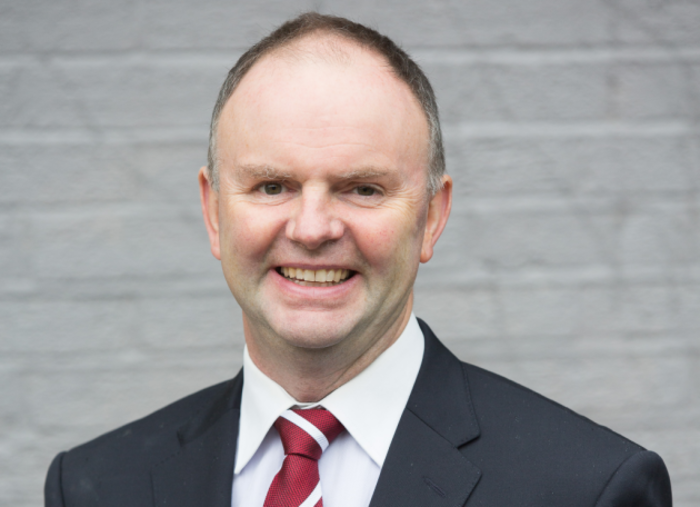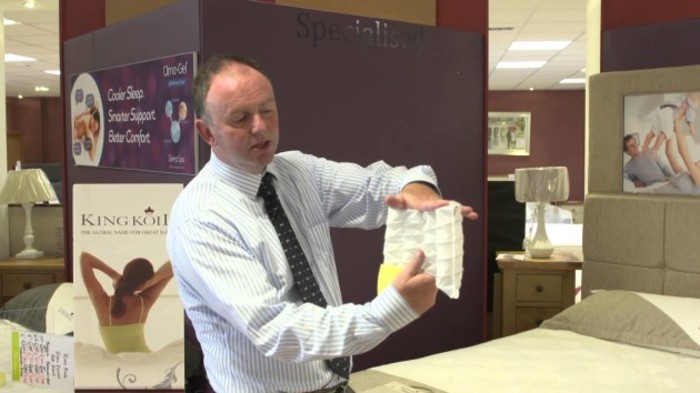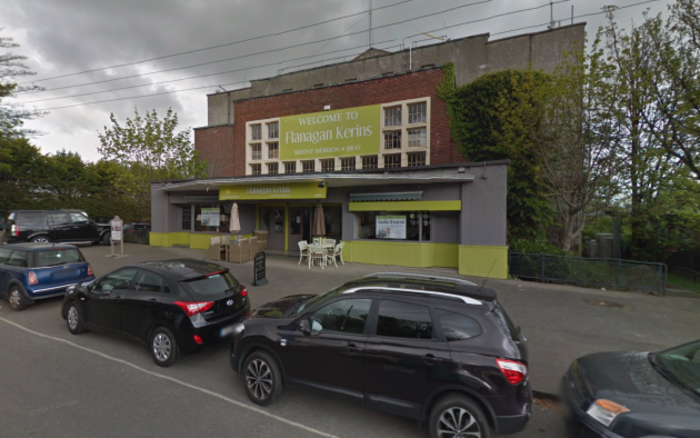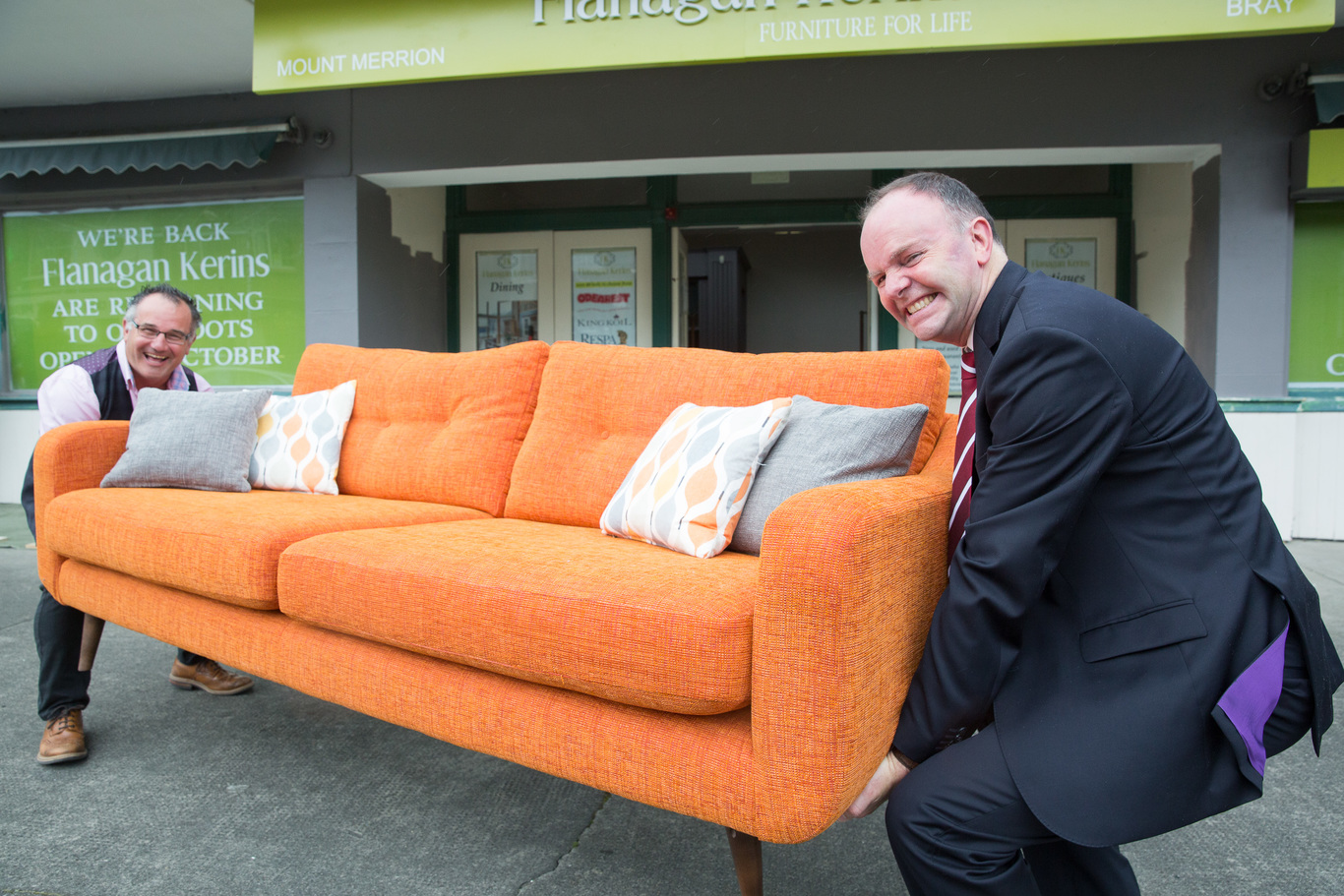'Being forced to close was like a bereavement. The business was all I knew'
Peter Flanagan talks about losing his family company during the recession.
MY FATHER STARTED the family furniture business in 1946, and we worked from the moment we walked.
There were rare holidays to be had. If there was no school, you were put to work unloading trucks, assembling beds or out doing deliveries.
I remember unloading bed frames during the winter, and your fingers would be in pain on the cold metal bases. Working was just the norm for us as kids.
There were almost two families in our house. My brother and sister, Brian and Joan, were a bit older, and then some years later myself and Edward followed.
When my older brother Brian went to UCD to study philosophy, he lived in Mount Merrion and my father came up to visit him.
During that time, they came across an opportunity to rent the old Stella Cinema in the area. Within a few years that had turned into a rent with an option to buy. About seven years later, I was dispatched to Dublin to develop it when I was about 18.
It might sound daunting, but I felt well-prepared for it. I had been part-time in the business all my life and, back in those days, all you had to do was show up and work hard.
There were very few business plans or projections and none of the business jargon we’re surrounded with now.
 Peter Flanagan
Peter Flanagan
Settling in Dublin
I was living in Buncrana, Donegal, up until the age of 14 or 15, and then was sent off to boarding school for a few years in Antrim.
That big shock of going to boarding school had me well set for the move to Dublin. I was miserable in Antrim for the first two years, but the experience hardened me up a bit.
When I first moved to Dublin, I still had this notion of studying law in the back of my mind. I had an offer in Newcastle upon Tyne, but my mother was reluctant for me to go over.
I tried studying part-time law at night in Rathmines to keep my options open, but it was heavy going with some of the subjects.
When I got a taste for buying and selling furniture in Dublin, I saw I had a flair for it and didn’t look back. I enjoyed law, but not half as much as dealing with people.
In Buncrana, my father and brother were always around, but in Dublin I felt it was my own turf.
But at 18, I was still a little bit wild. So I was enjoying the music scene and the freedom of being away from home. I was stretching my wings and finding my feet all at the same time.
What happened then was I made the best decision of my life – I met a Dublin nurse, Yvonne, working in Vincent’s Hospital, we got married and had four wonderful children.
Growing the business
I was really enjoying the work and we had a lot of adventures over that period.
The turnover from then until the heady Celtic Tiger days went up 20-fold. Despite some bumps along the way, we managed to come out the other side of the downturn in the 1980s.
People might not remember, but the 1980s were very tough indeed. We survived because we had quite a few strings to our bow.
We were selling antiques, second-hand furniture, ex-British Army furniture and also new stock. It meant we could adapt to the different price points.
Around this time we got a chance to buy a big batch of army furniture – it was a town’s worth of stock. I put a bid in for it, placing a $1,100 wager down on the off chance anyone placed a $1,000 bid.
We got word the tender was ours, and I got on a plane with a German phrase book to collect the stock – there were 20 forty-foot containers of furniture we had to get out of there.
We shipped it out of there and back to store in potato sheds back in Ireland. It was one of the best deals we ever got and that stock kept us going through that 1980s recession.

Surviving
My older brother always had the desire to manufacture and he was the one who developed the business from my father’s time – the credit goes to him for developing the factory in Buncrana.
But the very success we had with that for 20 years became a significant burden when times were tough because of the wage bill and price point of the product compared to the flood of Chinese imports.
The last recession though, we didn’t make it through. It was a very tough time for small businesses like ourselves. When we had to close, it was like a bereavement. I had grown up with the business all my life and it was all I knew.
We had cut costs over three successive years, taking sizeable pay cuts at the top. But we were too slow cutting our costs, too restrained and too late.
We had bought the Fruit of the Loom plant in Buncrana and expanded into that, which was 100,000 sq ft. We thought it would last the family business for another 50 years.
We were thinking about the future of our children who would take on the business. But it was probably too big a bite to take. And then when the tide went out we didn’t address it quickly enough.
And because it was in a small town and there were families working in it, we had a great reluctance to cut hard enough or quick enough due to the effects it would have on the community.
But making those difficult decisions in a timely fashion is what’s expected of leaders. We didn’t do it and it all fell apart. We were fighting tooth and nail to save it, while juggling the stakeholders. The thought of it closing was awful.
You see people’s true colours in business when things get really tough. How people behave changes, the grief overcomes some people and the fear of loss has people you thought you could rely on letting you down, while others surprise you with their resilience and support.
It’s a real education to see a business go bust. It all wrapped up very quickly, but the reality then set in that I had to put food on the table, continue to work and pay the mortgage.
Like a lot of people, I just went into survival mode. But I knew it would blow over and things would improve.
Closing down
The business closed its doors in November 2011. I was just turning 50, had kids at college and school, so my first thoughts were, “I’ve got to get an income.”
It’s always going to be a difficult situation when you’ve got family because there was another generation coming on at that stage. My brother wanted me to go into business with his sons, but I just wanted to keep it simple and open a shop.
My right-hand man for 20 years had been Damian Kerins, and he grew to be a vital part of the business. He and I shared the same way of working, so after talking to Yvonne I decided to open a small furniture shop with him.
We took on one employee from the old business and got a shop in Bray to rent, and we worked hammer and tongs to get Flanagan Kerins established by February 2012.
We were buying and selling during the day and delivering the stock ourselves at night – I was back to my childhood days.
I remember one evening we were out in Dalkey delivering, and the van couldn’t get up the small lane to the cottage. We had to bring it all up on a trolley and then carry it upstairs.
We were still assembling at 11pm with the sweat rolling off us. We joked that this time next year we’ll be millionaires.
I didn’t have an income for most of the first year, but thankfully my wife was working as a nurse. We had to borrow from in-laws to get started and bought a second-hand van on DoneDeal.
It was fun though, it was nice to be part of a business that was growing rather than firefighting to keep one alive.
Then in 2016 it came back full circle to Mount Merrion when we got an opportunity to move back into the place where the Dublin business all started – in the old Stella Cinema.
The new owners applied for planning permission and I said to them, “If ever you want a tenant in there for a pop-up give us a shout.”
I got a call a month later from them to say, “Let’s sit down and talk.” They wanted to sit on the building and wait to sell it when the market was more favourable.
 Flanagan Kerins store in Mount Merrion
Flanagan Kerins store in Mount Merrion
Future
The building had been idle for six years, the windows were broken, the pigeons had taken over and the wiring and plumbing had been stripped from the building.
It was an awful mess we were left to fix up, but we were thrilled to get in and we really appreciated the new owners’ trust in us.
It might seem like a case of nostalgia getting the better of me, but I’m an optimist with a strong faith, so I knew our team could turn it around.
I underestimated the challenge of it – these things always take longer than you think. But we set a deadline of opening in October 2016, and we made it by the skin of our teeth. We’re still in the building now.
There’s still no airs and graces in the business. I’m still out delivering when I need to and getting stuck in.
Our winter sale is up on last year so far. It feels like there’s more confidence around and I think it will be a good year.
If you asked me what I wanted to achieve in business 30 years ago, I would have said to build up a chain of shops and to be servicing the whole country, and even abroad, with 40-foot trucks going north, south, east and west.
But now it’s more about quality in people and product and a holistic furnishing service. That’s what I’m focused on.
Peter Flanagan is the co-owner of Flanagan Kerins. This article was written in conversation with Killian Woods as part of a series on business mistakes and what can be learned from them.






